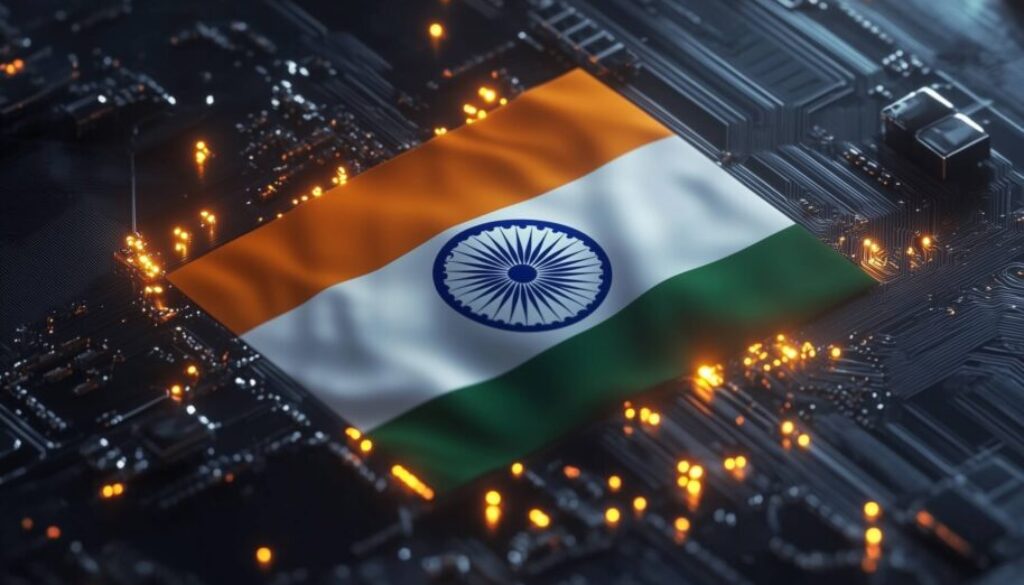Quantum computing (QC) is an important constituent of today’s developing technology. The technology has progressed fast over the years, but applied challenges persevere. The present surge in artificial intelligence, and the equal improvement it has obtainable to conservative procedures, delivers an extra challenge for quantum algorithms. India, for its part, accepted its National Quantum Mission in April 2023, and while it will greatest surely offer the motivation that the technology needs to flourish in the country, it lays out very modest goals that may advantage importantly from a broader and more determined view.
Global investment in QC reached US$35.5 billion in 2022, with investments in quantum technology start-ups hitting an unsurpassed high of US$2.35 billion.
Indian Scenario
On April 19, 2023, India revealed its INR 6,003 crore National Quantum Mission (NQM), which has four pillars: quantum computation, quantum communication, quantum simulation, and quantum sensing and metrology. To this drive, it had well-ordered the founding of four Thematic Hubs (T-Hubs) in university and national R&D institutes around the country to organize each of these verticals. These T-Hubs were recognized as Section 8 corporations, giving them more individuality and suppleness than old-style funding arrangements. Each hub’s goal was to organize and syndicate all essential movements to meet the mission’s targets as outlined in the Detailed Project Report (DPR).
The T-Hub was awarded to an institute or consortia through an open call. Relevant parties were expected to collect a united team to offer on the T-Hubs. Also, the hubs conduct translational research, nurture start-ups, establish ties with industry, stimulate global collaboration, operate an outreach program, and implement a thorough Human Resource Development program to make the staff carry out the mission.
Since it is unidentified whether a hardware platform will deliver a functional quantum computer, the mission emphasized vital hardware platforms such as trapped ion, super- & semi-conducting, photonic, and neutral atom qubits, while being open to new and developing platforms. The objective was to produce quantum computers with 50-100 logical qubits by five years, increasing to 1,000 qubits or more across many hardware platforms within eight years. The emphasis was on the growth of quantum error correction and quantum algorithms for practical applications that meet the demands of the country. The mission also intended to establish an ecosystem that allows start-ups to grow and offer component technologies for quantum computers, in addition to making lasting profitable business cases.
The Tata Institute of Fundamental Research (TIFR) in Mumbai has built a 3-qubit quantum computer using superconducting qubits and has worked with DRDO and TCS to develop a 7-qubit computer. IISER Pune’s I-HUB Quantum Technology Foundation, in collaboration with IIT Roorkee and IIT Guwahati, emerged a 20+ qubit quantum computer based on ion traps and another based on neutral atoms. IIT Bombay and IISER Thiruvananthapuram are developing spin qubits based on semiconductors, whereas IISc Bangalore is focusing on superconducting qubits. The Chatterjee Group Centres for Research and Education in Science and Technology (TCG CREST), in collaboration with TIFR and IISc Bangalore, is developing India’s first quantum computer.
QC R&D in India
India has applied methods to encourage quantum education. In 2022, IIT Madras offered an advanced course in QC technology, covering quantum algorithms and quantum computer programming. In 2020, IISc Bangalore announced its Quantum Technology Initiative (IQTI) to perform quantum technology research and development and to provide a framework to stimulate collaboration among physicists, material scientists, computer scientists and engineers. It has also built a quantum computing centre dedicated to quantum algorithms, quantum information theory, and quantum error correction. Other institutes that do quality control research include IIT Jodhpur, TIFR in Mumbai, IISER in Pune, Raman Research Institute in Bengaluru, and the Harish-Chandra Research Institute in Allahabad. Several QC businesses, such as Globally Xanadu, Classiq, QRDLab, and QuintessenceLabs.ai, teach educational institutes and enterprises to create a quantum workforce in the country.
The Ministry of Electronics and Information Technology (MeitY) has developed a Quantum Computing Applications Lab in conjunction with Amazon Web Services (AWS), to accelerate QC-led R&D and allow new scientific breakthroughs. This is MeitY’s first endeavour to give the country’s scientific, academic, and developer communities access to a cloud-based quality control development environment. The lab offers chosen candidates free on-demand access to QC hardware, simulators, and programming tools, as well as AWS cloud resources, allowing them to design algorithms, conduct sophisticated simulations, and execute tests. This is also the first AWS cloud-based QC applications lab to assist a government’s national science and technology goal.
However, there is a talent and skill deficit in the quantum technology sector, both in India and throughout the world. This might be attributed to a general lack of knowledge about prospective career and economic options in the industry. Many colleges lack quality control specialists, proper training resources, and cutting-edge laboratories where students may gain hands-on experience. Only a few colleges, like IIT Madras and IISc Bangalore, offer courses in quantum technology.
NQM provide chances for quantum education and equips students and instructors to use and develop with quantum technologies. This program must also be supported by policies that assist grow quantum technology, such as developing innovative quantum algorithms, constructing quantum-secure cryptography systems, and providing training to the staff.
Importance of QC for India
 QC may be modified to handle India’s particular concerns across sectors. For example, in the pharmaceutical business, quantum computers can be utilized to revolutionize drug development by allowing for more realistic simulations of chemical interactions and expediting the identification of viable medication candidates. This might have far-reaching ramifications for tackling health issues unique to the Indian people.
QC may be modified to handle India’s particular concerns across sectors. For example, in the pharmaceutical business, quantum computers can be utilized to revolutionize drug development by allowing for more realistic simulations of chemical interactions and expediting the identification of viable medication candidates. This might have far-reaching ramifications for tackling health issues unique to the Indian people.
In materials science, QC might help to create novel materials with improved characteristics to meet important needs like effective energy storage solutions for India’s expanding energy demands. QC can play a critical role in promoting sustainable technology, such as superconductors and better batteries, that are consistent with India’s emphasis on renewable energy.
The country’s financial industry will also benefit from quantum algorithms, which have the potential to improve financial modelling, risk assessment, and fraud detection, adding to India’s financial system stability and security. In addition, QC can improve cybersecurity procedures to secure financial transactions and data.
In logistics and manufacturing, quantum computers can outperform classical computers in complicated optimisation tasks such as storage and route planning. Quantum annealers are already delivering benefits in these fields, which is especially important considering India’s aims of ‘Make in India’ and ‘Atmanirbhar Bharat’, as well as its aspiration to become a worldwide manufacturing powerhouse.
QC, when combined with other quantum technologies such as quantum sensors, can allow precision agriculture, increasing agricultural efficiency and improving farmer livelihoods. QC can also assist improve current knowledge of complicated molecular processes, resulting in more efficient and less carbon-intensive farming activities such as fertilizer manufacture.
Recommendations for India
The NQM must address a number of quality-related concerns. Recent advancements in the sector can serve as crucial suggestions for the future of quality control in the nation.
- India falls behind in QC R&D in terms of both patent filings and publications. This is an urgent matter that the NQM must address. The instance of China emphasizes the significance of innovation in research over volume; and quality over quantity.
- The NQM should invest in advanced quantum labs and research centres, and foster international cooperation. Government policies and funding, like with other developing technologies like artificial intelligence, are essential to provide a conducive environment for quantum research and development. With appropriate investments in education, infrastructure, policy, and collaboration, Indian institutions have the potential to become a global powerhouse for quantum education and research.
- The National Programme on Technology Enhanced Learning (NPTEL) and the emerging digital education environment offer opportunities to develop a blueprint for quantum education in the country. India must create a comprehensive curriculum that covers a wide spectrum of quantum physics and computer disciplines at the undergraduate, graduate, and doctorate levels. Similar programs include a bachelor’s quantum engineering degree at the University of New South Wales in Sydney, as well as a master’s program at the University of California, Los Angeles and San Jose State University. Such programs should be complemented with hands-on training, internships, and industry engagement to provide student’s real-world experience. Free courses, such as those provided by NPTEL, should cover quantum education and workforce development.
- Room-temperature superconductors play a crucial role in quality control, with several applications in material sciences. The breakthroughs surrounding LK-99 have prompted additional study in the sector, and it appears that they will become a reality in due course. As a result, room-temperature superconductivity research must be included in the NQM.
- India has made no progress in quality assurance, which is not included in the NQM. Canada has been a pioneer in the creation of quantum computers that anneal. Given the potential of QAs for tackling complicated optimisation issues and designing encryption-breaking algorithms, it is advised that India either imports or develops the technology in-house.
- The NQM’s ambition of developing intermediate-scale quantum computers with up to 1000 logical qubits by 2032 is modest, putting India behind worldwide achievements. At the moment, the country lacks a long-term strategy for full-scale quantum computing. IBM has already constructed a 1,000-qubit (although non-logical) processor and aims to build a large-scale quantum computer by 2033. If India wants to catch up with the world leaders in quality control, it must speed up its efforts. The NQM might thus benefit from a larger and more ambitious goal.
- India currently imports the majority of QC components from the US and EU. Promoting the indigenization of this equipment will permit speedier development while lowering prices and creating jobs.
Conclusion
The present issues in QC are engineering-related rather than physics. In the most optimistic scenario, these issues will be resolved by 2033. However, this is still a long way off. Furthermore, while business interest in QC is growing, the topic is now considerably more intriguing for researchers.
Given recent advancements in QC, India’s NQM should design a more comprehensive plan. Its existing outcomes are outdated and should be revised. QC has the potential to encourage innovation and progress in a variety of industries, and India needs to take advantage of this ripe opportunity.
~ Sudeepa Ghosh

